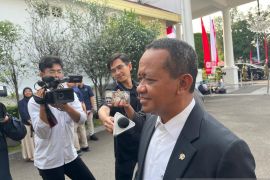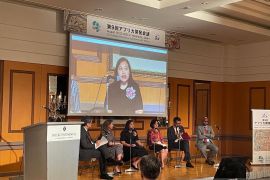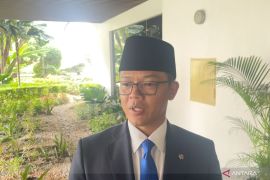The Fangchenggang Industrial Park could be made an Indonesia-China Industrial Estate in Guangxi, Guangxi Deputy Governor Zhang Xiaoqin said.Beijing (ANTARA News) - China suggested development of an Indonesia-China industrial estate in the province of Guangxi, China, marking growing economic cooperation between the two countries.
Guangxi Deputy Governor Zhang Xiaoqin said the provincial government is building an industrial estate in the city of Fangchenggang.
The Fangchenggang Industrial Park could be made an Indonesia-China Industrial Estate in Guangxi, Zhang Xiaoqin said when receiving Indonesian Ambassador Imron Cotan, who was visiting the province on May 18-20.
Meanwhile, Liu Zhengdong, the Fangchenggang Chinese Communist Party Secretary, said the port city is strategic being close to ASEAN countries.
The city is relatively small but it has developed brisk trade with ASEAN countries including Indonesia, Liu said.
He cited in 2012, Indonesia accounted for 90 percent of the city`s imports from ASEAN and 90 percent of the city`s imports of coal came from Indonesia.
The city imports coal to fuel its coal fired power plant, he said.
He said the port city is developing itself into an international transit port and to become a base for port industry.
The industrial estate being built in Fangchenggang could serve to process mineral products and as a logistics base, he said.
Imron Cotan said if the project provides a comparative profit, there would be many Indonesian and Chinese business people interested in investing in the industrial estate.
The industrial estate could also serve to bridge relations between the two countries, Imron, who is also Indonesian Ambassador to Mongolia, said.
Imron noted that bilateral relations between Indonesia and China are expanding rapidly marked with a threefold growth in trade volume, investment and tourism cooperation in 2010-2012.
The expanding bilateral relations had been followed with increase in mutual understanding and confidence between the business communities of the two countries to take a concrete step toward realization of the Indonesia-China Industrial Park, he said.
It is necessary to encourage the business communities of the two countries to consider development of a mutually beneficial industrial estate, he said.
"If necessary similar cooperation through sister port cities could be developed to provide links between Indonesia and China," he said.
He encouraged Chinese business people to develop industry to process raw materials into half finished goods in Indonesia before the Indonesian regulation banning exports of mineral ores is effective in 2014.
The half finished materials could be processed further into finished goods in the Fangchenggang industrial estate, he said, adding and the products could be used by China or exported to ASEAN.(*)
Editor: Heru Purwanto
Copyright © ANTARA 2013











